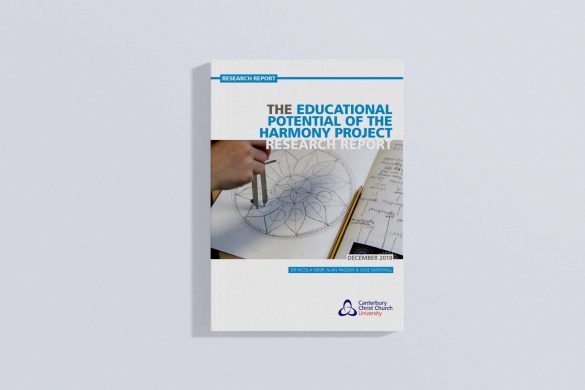What does research tell us about Harmony in education?

Research suggests the Harmony approach can contribute to teacher wellbeing and positive outcomes for students
At a time when more attention is being paid to teacher wellbeing, research from Canterbury Christchurch University (CCCU) highlights the positive impact that a Harmony approach to teaching and learning can have on staff and student wellbeing, as well as on the outcomes of education.
The research, which was funded by CCCU, set out to explore the educational potential of a Harmony approach to teaching and learning. This approach puts Nature at the heart of education through the application of principles of Harmony which we see at work in the natural world.
The researchers, led by Dr Nicola Kemp and Alan Pagden, found that this approach appeals to schools in very diverse contexts and for a wide range of reasons. For many of the headteachers who took part in the research, the appeal of a Harmony approach to curriculum development lies, in part, in its relevance to the new OFSTED focus on curriculum intent, implementation and impact, and the opportunities it presents to develop an outstanding curriculum. Others were motivated by the sense of moral purpose that underpins the Harmony approach, which encourages students and teachers to engage with issues of sustainability and resonates strongly with United Nation’s Sustainable Development Goals (SDG 4.7, in particular, articulates a responsibility for schools to deliver education for sustainability and global citizenship).
For the teachers who were interviewed as part of the research, applying principles of Harmony in the classroom reaffirmed their educational values, while students felt that this approach fostered a sense of agency and ownership of their learning.
More information about the way in which a Harmony approach is being developed in different school contexts can be found in the report itself, which is downloadable below.



